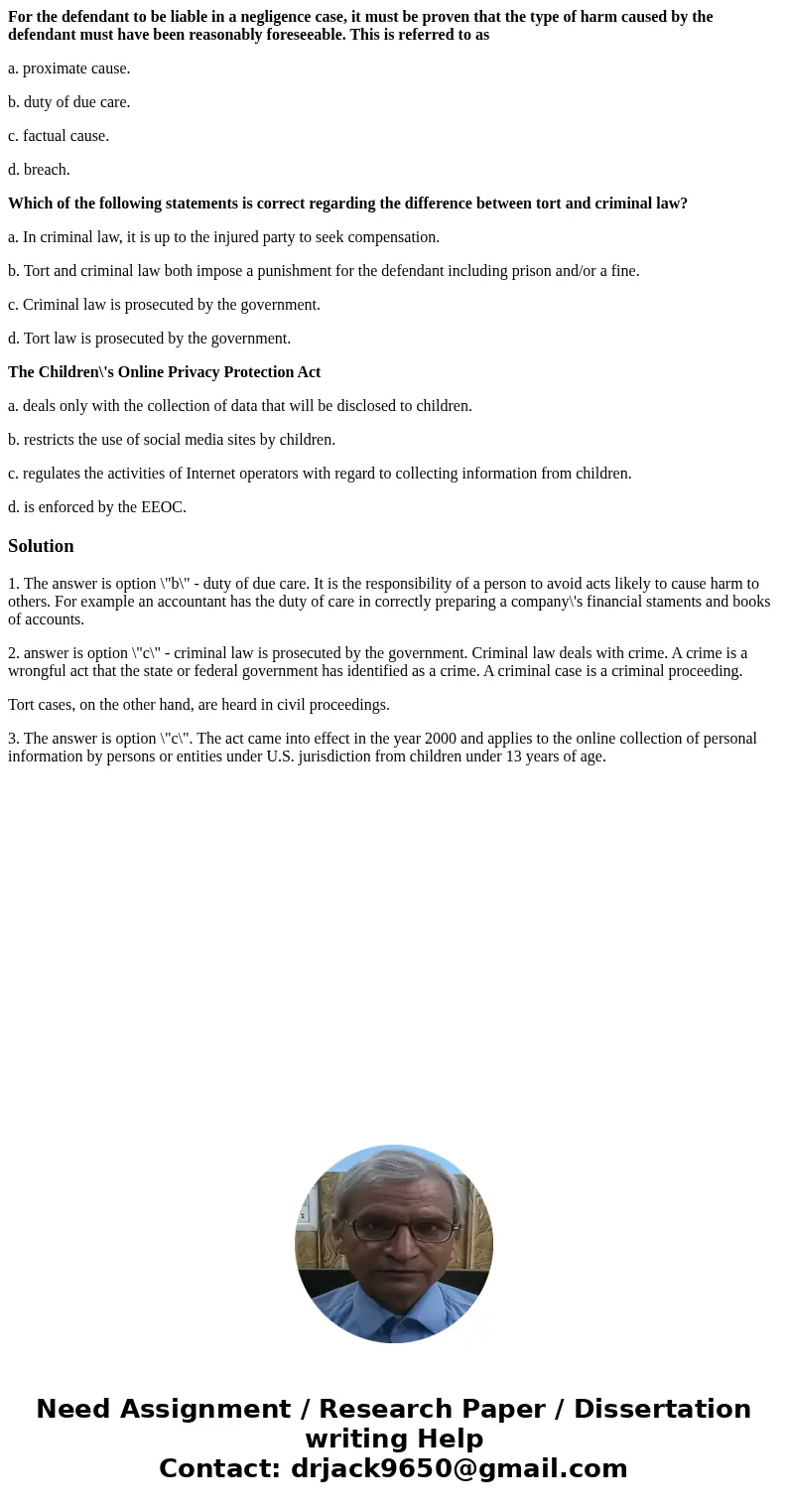For the defendant to be liable in a negligence case it must
For the defendant to be liable in a negligence case, it must be proven that the type of harm caused by the defendant must have been reasonably foreseeable. This is referred to as
a. proximate cause.
b. duty of due care.
c. factual cause.
d. breach.
Which of the following statements is correct regarding the difference between tort and criminal law?
a. In criminal law, it is up to the injured party to seek compensation.
b. Tort and criminal law both impose a punishment for the defendant including prison and/or a fine.
c. Criminal law is prosecuted by the government.
d. Tort law is prosecuted by the government.
The Children\'s Online Privacy Protection Act
a. deals only with the collection of data that will be disclosed to children.
b. restricts the use of social media sites by children.
c. regulates the activities of Internet operators with regard to collecting information from children.
d. is enforced by the EEOC.
Solution
1. The answer is option \"b\" - duty of due care. It is the responsibility of a person to avoid acts likely to cause harm to others. For example an accountant has the duty of care in correctly preparing a company\'s financial staments and books of accounts.
2. answer is option \"c\" - criminal law is prosecuted by the government. Criminal law deals with crime. A crime is a wrongful act that the state or federal government has identified as a crime. A criminal case is a criminal proceeding.
Tort cases, on the other hand, are heard in civil proceedings.
3. The answer is option \"c\". The act came into effect in the year 2000 and applies to the online collection of personal information by persons or entities under U.S. jurisdiction from children under 13 years of age.

 Homework Sourse
Homework Sourse